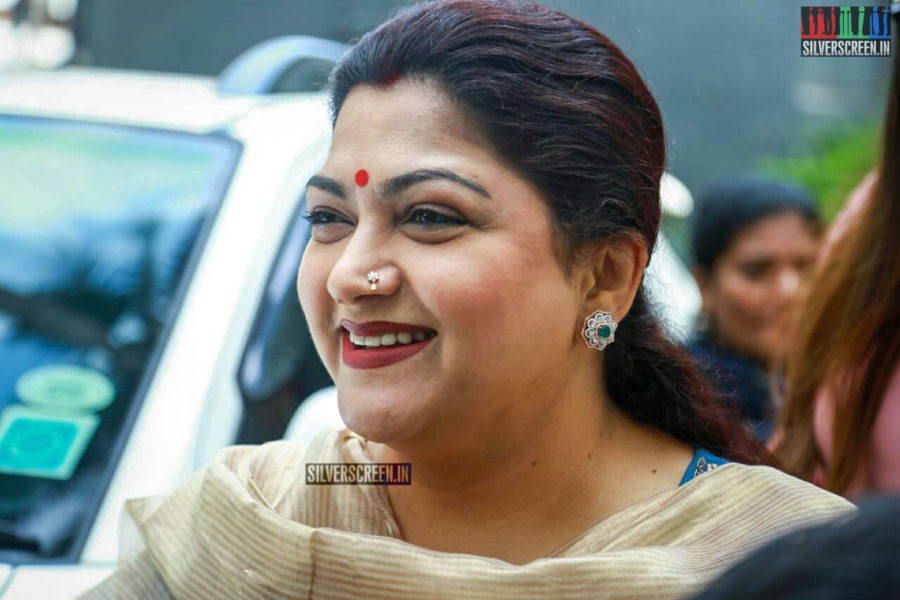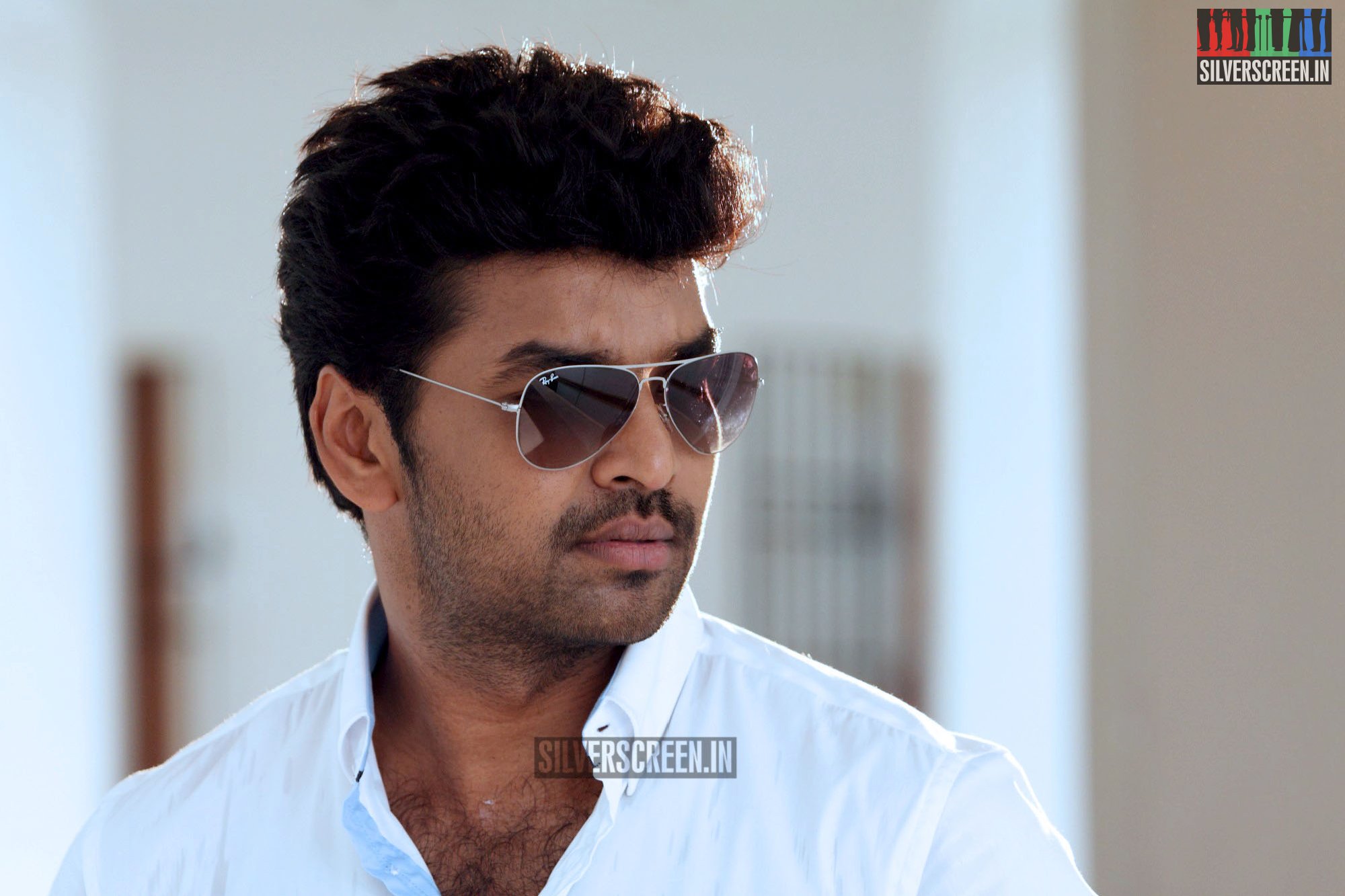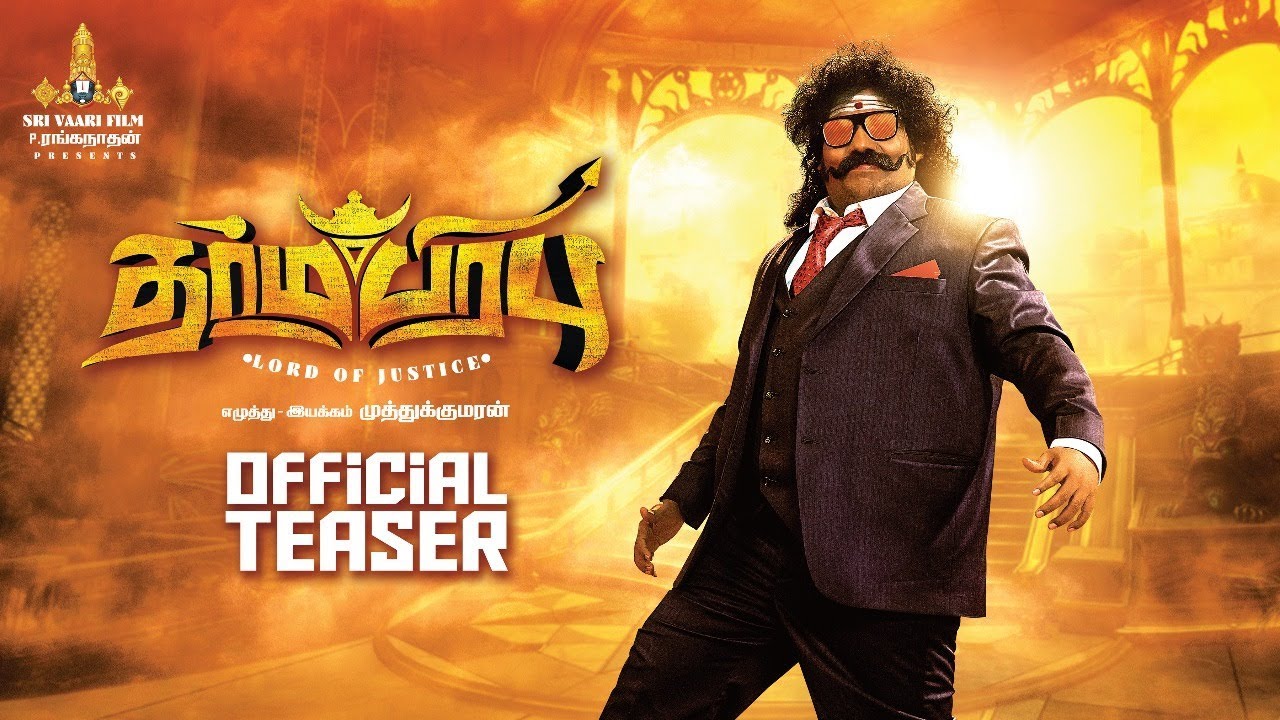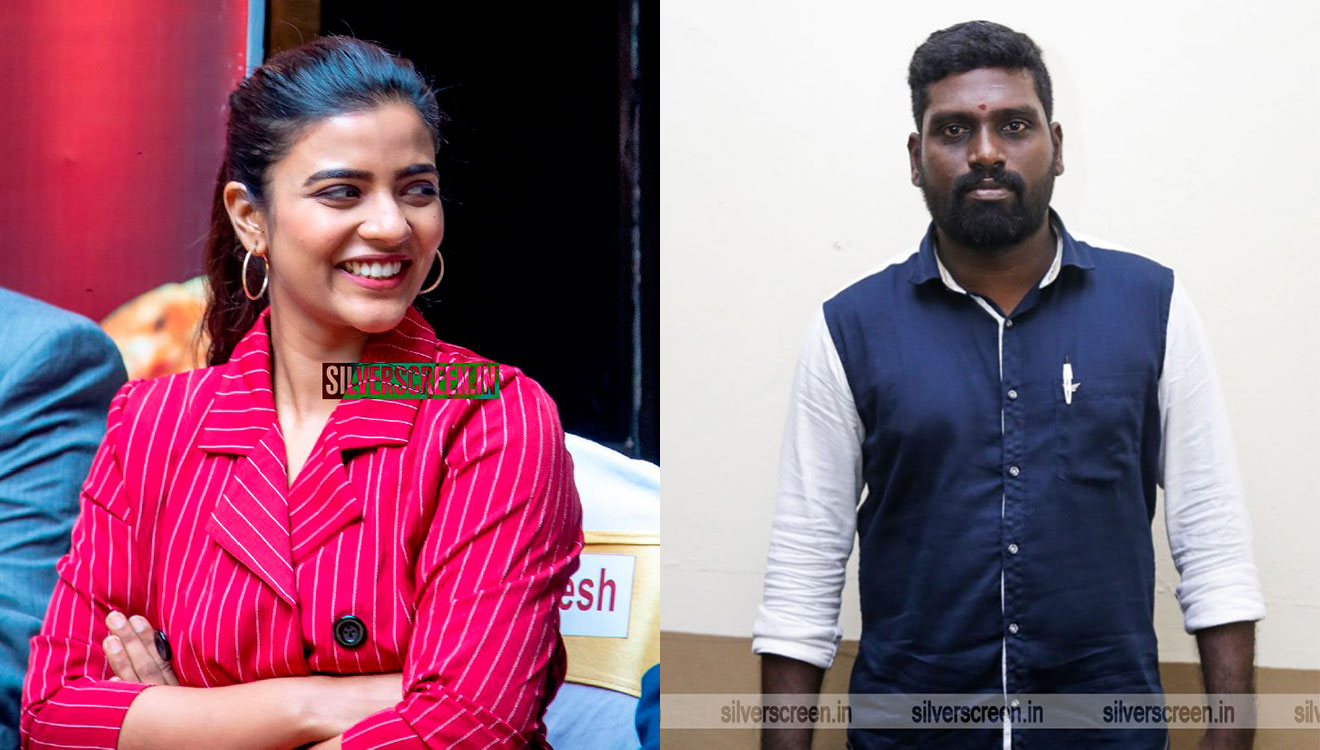Ten years and three parties- this is how one would summarise actor-turned-politician Kushboo Sundar’s political journey in five words. From joining the Dravida Munnetra Kazhagam (DMK) in 2010 to jumping ship and joining the Indian National Congress in 2014 and the latest- the ruling party Bharatiya Janata Party (BJP) in October- Kushboo has been controversy’s favourite child.
On October 12, Kushboo took Tamil Nadu by storm when she announced that she would be ending her six-year-long journey with the Congress. While people were still speculating reasons for her resignation, in just a few hours after quitting the Congress, Kushboo flew to New Delhi to join the saffron party. She has seldom shielded away from voicing her opinions and her political journey has seen many twists and turns during these past 10 years.
One of a kind actor
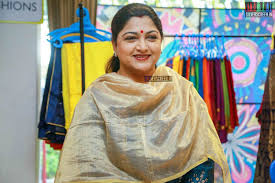
kushboo pic
Kushboo hails from a non Tamil-speaking family in Mumbai. Marking her acting debut as a child artist in the 1980 Hindi film Burning Train, she went on to work in several hit films until she decided to shift her base to the south. Her first south Indian venture was Telugu film Kaliyuga Pandavulu in 1986, opposite Venkatesh. Subsequently, she shifted focus to Tamil films and debuted with Dharmathin Thalaivan in 1988, starring alongside Rajinikanth, Prabhu and Suhasini.
From being the only artist to have a temple in her honour to having various items named after her- Kushboo idly, Kushboo jhimki– she occupied a special place in Tamil cinema. She is no stranger to controversy and has been vocal about women’s rights, including supporting pre-marital sex in India.
Political plunge
In May 2010, three years after she starred in the Tamil film Periyar (the biopic of the social reformer and rationalist), Kushboo plunged into politics and joined the DMK. The film was partly funded by then DMK chief M Karunanidhi. Kushboo had then said that she identified with the party’s progressive ideas and beliefs that empowered women. Soon after she joined politics, her reality show Jackpot, which she was anchoring on Jaya TV for nine years, stopped streaming.
However, within just four years since joining the Dravidian party, she called it quits. She cited lack of recognition within the party, being “sidelined” and her hard work to be a “one-way path” as reasons for stepping down. The announcement had come just a few hours after the party’s top brass decided to reorganise the district units. Her announcement also came after an interview for a Tamil magazine, where she spoke in favour of a democratic method to elect DMK’s next party chief, when asked who was next in line after Karunanidhi. While ardent supporters of Karunanidhi’s son Stalin slammed the actor for her opinion and vandalised her home, she was reportedly still on good terms with Karunanidhi.
After five months, on November 26, 2014, Kushboo joined the Congress. Announcing it to be her “homecoming”, Kushboo claimed that only the Congress could work for the country and unite the people. Within a year, she was elevated as the party’s national spokesperson and became a star campaigner during the 2014 Lok Sabha polls and 2016 Assembly polls.
Earlier this year while she was still a Congress leader, she voiced her support for the National Education Policy brought out by the BJP, seemingly a hint of her next political turn.
On October 12, after a six-year stint with the Congress, she quit the party citing the same reasons- her views were suppressed by the party’s leadership- and joined the BJP on the same day. Speculations are rife that Kushboo, a prominent face in Tamil Nadu, can help the BJP make inroads through the state.
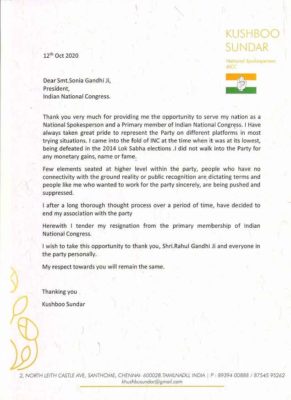
khushboo quits
How do analysts see this?
According to political analyst V Maalan, Kushboo is independent, keeps evolving and forms her political decisions based on issues, instead of falling back on her party’s ideologies or the stand it is taking.
“As you evolve, perspectives change. For example, Kannadasan began as an atheist with the DMK, but as he evolved, he leaned towards Congress and later became a theist. He also wrote books on Hinduism before his death.” he said.
Citing the poet’s example, Maalan explained that in any person, ideas stem from either exposure or experience. Such a person would not be able to fit in an indecisive or directionless organisation, he said.
“An open-minded person would be open to ideas and are free thinkers. Kushboo has not limited herself. And also, being a good crowd-puller and more analytical with her ideas, active people like her would have felt uncomfortable in Congress. This was the same with the case of (Jyotiraditya) Scindia too. Even after joining the BJP, Kushboo has boldly said that she is still a Periyarist and that is what she is,” he said.
He added that until 1970s, parties had a dissent culture -ability to disagree with party ideologies- but politics has now changed from being ideology-based to leader-based.
Political commentator R Kannan feels that Kushboo’s freedom of expression may have little to do with her shuffling around in three parties in 10 years. He said that people like her- with an ability to independently pull crowds, besides being a woman- will always pose as a difficulty in personality-based parties.
Recommended
“Kushboo left her first party, as I think, because she felt that other than the leader, the others were not so welcoming of her. Regional parties are more restrictive and independent-thinking, which is a risk that few can take. Look at Nitish Kumar’s party (Janata Dal (United)). Both Prashant Kishor and Pavan Varma had to leave as they differed openly with their leader’s choice to be allied with the BJP. In Tamil Nadu, Nanjil Manoharan, SDS, Kalimuthu, P Srinivasan, Kovai Chezhian, Viswanathan (VIT) come to one’s mind. The first rebel was Anna himself in the Dravidian movement and later, EVK Sampath in the DMK. In the case of Kalimuthu, it was never clear if he was his master’s voice or if he struck a discordant note on his own. In the Congress, Kushboo may have felt fettered,” he said.
According to Kannan, the Congress in Tamil Nadu is raucous and one more voice would have not mattered, but Kushboo may have felt marginalised. There could be other reasons as well for her opting for the BJP.
“National parties, like the Congress and the BJP, are large enough to accommodate divergent views but up to a point. Subramanian Swamy is a classic example. Cho Ramasamy, too, when he was in the Janata Party. But these examples are few and far between. It will take a much longer time before our democracy will mature to the extent that all divergent views can be accommodated, if not openly at least within. Also, very few politicians, who have hailed from other fields, have managed to leverage their popularity in public affairs,” Kannan concluded.
